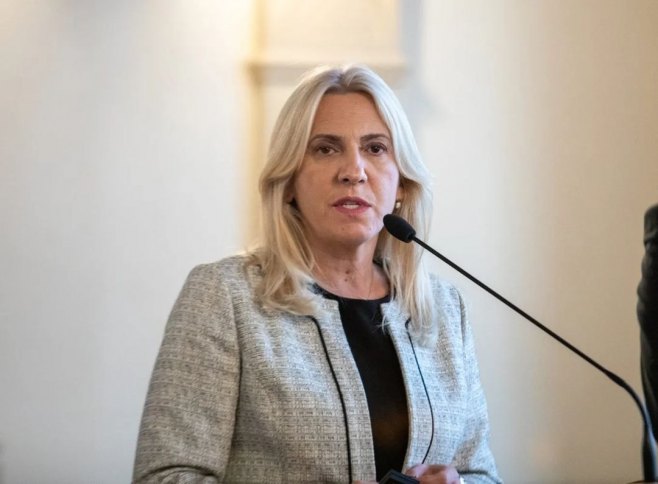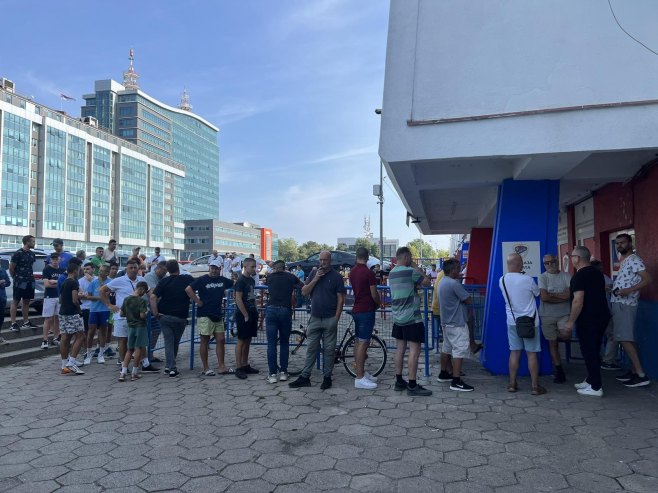Renowned professor of constitutional and international law Eugene Kontorovich published an opinion piece in the Jerusalem Post, using the example of Republika Srpska President Milorad Dodik to illustrate Europe’s hypocrisy and to warn Israel of the hidden intentions of certain European power centers.
Professor Kontorovich recalled events that took place during an international conference on combating antisemitism in Jerusalem, attended by Dodik, and highlighted an attempt to politicize Interpol.
At the time, Dodik was in Jerusalem attending the conference organized by Israel’s Minister for the Diaspora, Amichai Chikli, when pressure was exerted for him to leave the event, as reported by the Jerusalem Post.
Israeli media reported that the government had been asked to arrest Dodik.
However, what the Israeli press did not mention is that just three days later, Interpol announced it had refused to issue a red notice against Dodik, deeming Sarajevo’s request legally unfounded under Interpol’s own rules.
Interpol only allows its system to be used for pursuing arrests related to “ordinary crimes.”
Such crimes can range from murder to mass murder—acts that are clearly wrong or universally punished. Interpol’s statute explicitly states that it may not be used for “political offenses.”
The organization’s legal precedent, outlined in its 2024 Repository of Practice under Articles 2 and 3, makes it clear that cases involving internal constitutional disputes, such as so-called crimes of “undermining the constitutional order,” do not meet the required threshold.
The speed with which Interpol rejected the red notice exposes the malicious intent behind the attempt by Bosniak authorities in Sarajevo to have the president of Republika Srpska arrested in Jerusalem.
Achieving the desired result
Despite Interpol’s swift dismissal, the authorities in BiH achieved their aim: generating negative headlines about Dodik and creating the false impression that he was an international fugitive, while also disrupting his participation in a major international conference. The process itself was the punishment.
BiH appeared unconcerned about disrupting a conference on antisemitism, despite the country’s troubled history with its Jewish population.
In short, Sarajevo weaponized legitimate legal institutions for political goals, thereby corrupting them—a tactic to which Israel should be especially alert.
Dodik’s alleged “crime” is not easy to understand, but its political nature is obvious.
The charges against him serve one clear purpose: to inform the Israeli public about the extraordinary situation in BiH, which ultimately led to Dodik’s conflict with political Sarajevo.
BiH’s unique power structure
BiH has a unique system of governance. Ultimate authority lies with an unelected official known as the high representative, a European bureaucrat appointed by an international consortium of European states. The high representative is, in effect, the country’s viceroy.
He can overturn government decisions and even rewrite laws, by his own admission. He is not elected by, nor accountable to, the BiH public or any domestic institution.
The position stems from the Dayton Peace Agreement, which ended the civil war in BiH. However, the Dayton Agreement, signed by Serb, Croat, and Muslim parties, did not grant dictatorial powers or legal authority to the high representative.
International administrators later usurped these powers, backed by a consortium of foreign governments.
What enables this?
What enables this system is the presence of European military forces stationed in BiH—peacekeepers who never leave.
The high representative’s legislative authority has no basis in the BiH Constitution, and appears to contradict Article 2, which guarantees that BiH will be a “democratic state, governed by the rule of law, with free and democratic elections.”
The government of Republika Srpska has consistently opposed these undemocratic powers, especially as they are disproportionately used against it.
In recent years, the high representative has annulled several laws passed by Republika Srpska that questioned his own legislative authority.
He bypassed the consensus-based legislative process in BiH by unilaterally changing election laws. Disobeying his decrees has been declared a criminal offense.
In February, Dodik was convicted of disobeying the high representative, which now constitutes a crime in BiH.
He was sentenced to one year in prison and barred from political activity for six years, in what Kontorovich describes as a familiar global pattern of using judicial processes to eliminate nationalist or right-wing leaders by imprisoning them.
Misuse of interpol and constitutional overreach
The BiH Constitution allows the heads of the two entities to engage directly with foreign governments—and the attempt by the central government to halt Dodik’s diplomatic visit via a blatant misuse of Interpol procedures could be considered unconstitutional. Yet in BiH, it becomes a crime only if the high representative deems it so.
A warning to Israel
For Israelis, this strange tale of political turbulence in BiH should highlight the profound hypocrisy of European states.
Israel does not legislate for the Palestinian authorities, nor does it cancel their laws—even laws such as “pay-for-slay”, which incentivize the killing of Jews. Yet Europe accuses Israel of denying Palestinian “self-determination,” while itself enabling a three-decade-long system of foreign proconsular rule in BiH.
When Israel acts in Palestinian territories, it does so in self-defense—a core sovereign right under the UN Charter.
When European countries act in BiH, they do so from a far darker place, under the presumption that they know what’s best for Bosnia and Herzegovina.
This article was written by Eugene Kontorovich, professor of constitutional and international law at the Antonin Scalia Law School at George Mason University, and senior fellow at the Kohelet Policy Forum.
Source: RTRS









